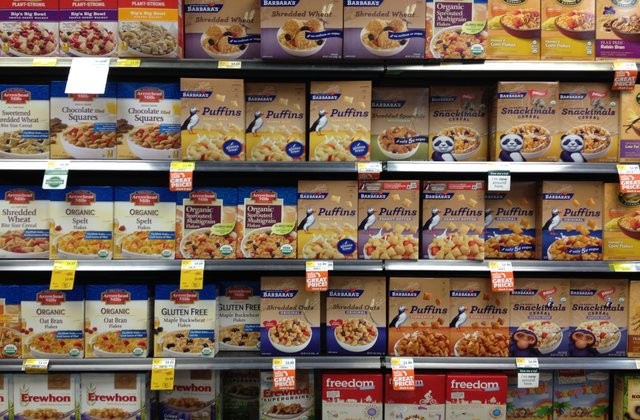What’s in a label? Organic, fresh, and all natural ingredients
As I opened a can of soup this week I noticed the “all natural” label on a can with an expiration date several months out. This got me wondering about product labels like “all natural,” “fresh,” and “organic.” Who is policing them and what do the labels really mean?
Organic certification is governed by the US Department of Agriculture and products sold under the USDA Organic label are subject to the National Organic Program. Per USDA’s requirements, the labels 100% Organic, Organic, and “Made With” Organic have different requirements, though all must note the certifying agent on the label. A label touting 100% Organic content means that all ingredients are certified organic as are the processing aids used in production. Plain old organic requires that all agricultural ingredients be certified organic, but allows certain exceptions in small amounts. The National List of Allowed and Prohibited Substances contains these exceptions and organic products may contain up to 5% non-organic ingredients if those items are on the allowed list. For example, synthetic ammonium bicarbonate may be used as a leavening agent. Mixed products that are labeled “Made With” Organic are not allowed to use the USDA’s organic seal on the product and as much as 30% of the ingredients may be non-organic. These ingredients, however, can’t be produced using certain excluded methods like genetic engineering, and any non-agricultural ingredients must be on the allowed list.
The term “fresh” is governed by Food and Drug Administration regulations on food labeling and can only be used when “food is in its raw state and has not been frozen or subjected to any form of thermal processing or any other form of preservation,” with a few exceptions, like the application of wax coating, post-harvest use of approved pesticides or ionizing radiation. Yum.
“All natural” and “natural” are where things get nebulous, and suits have been brought regarding their use. The FDA does not strictly govern the term “natural,” and as described by the Wall Street Journal in September 2011, the FDA has provided only vague guidance on the subject, stating in an informal policy that “nothing artificial or synthetic… is included in, or has been added to, the product that would not normally be expected to be there.” Understandably, this can lead to confusion for consumers unsure of how to interpret the label. So, the jury is still out on “all natural” and you should use your best judgment and review the nutrition label when deciding whether to buy!
Think about it: Do you choose specific labels when shopping for food? Are there any labels that you find particularly confusing?
Sinead Goldman thinks fresh all natural organics are deliciously confusing and will graduate from the M.S. Environmental Sciences & Policy program in May.



I usually choose organic produce if it’s available. I also try to buy organic beef and chicken, although our local Giant Food store has not offered organic meat until recently, when I saw organic chicken there.
I buy organic because I know the farming methods are better for the land and the waterways — and probably for my health. Organic food also tastes better than conventional grown food, which is a big plus.
A recent article in the Washington Post highlighted a 2012 meta-study published in the Annals of Internal Medicine that concluded organics are not nutritionally different from conventional foods. The study did find a 30 percent lower chance of pesticide contamination in organic foods. (See the WaPost story here, http://www.washingtonpost.com/national/health-science/organic-baby-food-its-more-expensive-but-it-may-not-be-more-nutritious/2013/03/18/b24f91d6-656a-11e2-b84d-21c7b65985ee_story.html)
So conventional foods have the same amount of vitamins and minerals as organic, but they might have a *bonus* pesticide, for which I’m supposed to accept the risk in exchange for a lower price? That doesn’t sound like a great deal to me; I’d rather pay a little more to support organic farms and a cleaner environment.